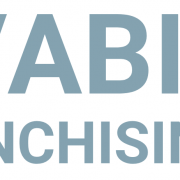The Importance of Due Diligence for Prospective Franchise Owners
Franchising has become a popular business model for first-time entrepreneurs looking to own their own business. By acquiring a franchise, you get instant access to an established brand and a collection of what should be proven business practices and marketing tools. However, before jumping into a franchise opportunity, you would be well advised to conduct a healthy amount of due diligence. Due diligence is the process of investigating and verifying the information provided by a franchisor in connection with the offer and sale of a franchise opportunity. Let’s explore why due diligence is so important for prospective franchise owners.
1. Is this a good investment opportunity? Before signing a franchise agreement, examine the franchisor’s financial statements with your accountant. Contact as many existing (and former) franchisees as you can. Talk to current franchise owners about their experiences and whether they feel they are receiving what they bargained for. Do your own research to assess whether the business model is sustainable and will lead to long-term profitability.
2. Understand the franchisor’s business model. Understanding (and following) the franchisor’s business model is essential to being a successful franchise owner. You must understand precisely what the franchisor expects from franchisees in terms of marketing, products, and services. Familiarize yourself with the franchisor’s operating history and values. Learn as much as you can about the franchisor before committing.
3. Verify the franchisor’s legal compliance. Before you sign a franchise agreement, research whether the franchisor is compliant with applicable legal requirements. Franchising is regulated by both federal and state law. From time to time, you will come across inexperienced franchisors that do not prioritize legal compliance, and this can quickly become a problem for the success and survival of a franchise system (and your franchised business too). Working with an experienced franchise lawyer to help you understand the franchisor’s disclosure document (the “FDD”) and contracts will help put you in a batter position to make an informed decision about a franchise opportunity.
4. Assess the overall support. Another vital checkpoint is to evaluate the quality and quantity of franchisor support. Ask the franchisor what kind of support and ongoing assistance they offer, and then contact other franchisees to confirm.
5. Read the franchise agreement (more than once). Before signing any legally binding contract, you should read it carefully with legal counsel and make sure you understand its provisions. Franchise agreements are long-term contracts involving a significant investment of money. Given the nature of the franchise relationship, franchise agreements are also relatively one-sided. Under Virginia law, a franchisee has the right to negotiate contract terms with a franchisor, and this statutory right should not be taken for granted. Whether you attempt to negotiate any changes, you should understand all provisions of a franchise agreement before signing.
In short, conducting appropriate due diligence is very important for prospective franchise owners. Through effective due diligence, you can better identify and mange risks and put yourself in a better position to enjoy a successful and profitable tenure as a franchise owner.









Leave a Reply
Want to join the discussion?Feel free to contribute!